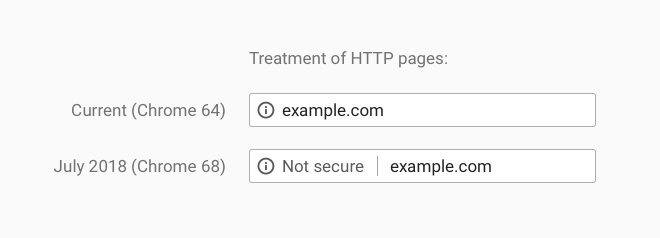
Google have been pushing webmasters and web owners to use HTTPS instead of the standard HTTP for their website.
Dedicating Chrome to make it easy to shift to HTTP, the browser allows mixed contents. And using Node CLI version of Lighthouse, which is an automated tool for improving web pages. the audit feature in Lighthouse is meant to helps developers in finding which resources are loading in HTTPS so they can change them all to HTTPS.
What's more, Google also said making websites using HTTPS should also be cheaper than before.
It also hint a small ranking boost to further incentivize webmasters to shift.
After years pursuing that goal, Google Chrome is making HTTPS as a "secure by default" for websites. What this means, Chrome is effectively identifing non-HTTPS websites as insecure sites. This move coincides with the release of Chrome 68.
Read: A Guide To Securing Your Website Using SSL Certificates

"Developers have been transitioning their sites to HTTPS and making the web safer for everyone," said Google.
The company also included some statistics as follows:
- Over 68 percent of Chrome traffic on Android and Windows is now protected.
- Over 78 percent of Chrome traffic on both Chrome OS and Mac is now protected.
- 81 of the top 100 sites in the world use HTTPS by default.
Google "Speed Update" To Make Speed A Ranking Factor In Mobile Search
Adding to its arsenal, Google also announced a ranking algorithm update designed for mobile search, called "Speed Update."
As Google's Zhiheng Wang and Doantam Phan explained:
Google recommends webmasters and developers to use the updated PageSpeed report and tools like Lighthouse to measure page speed and to know where to make improvements.
"We encourage developers to think broadly how about performance affects a user’s experience of their page and to consider a variety of user experience metrics when improving their site," said Google.
All of the above are taking affect in July 2018.